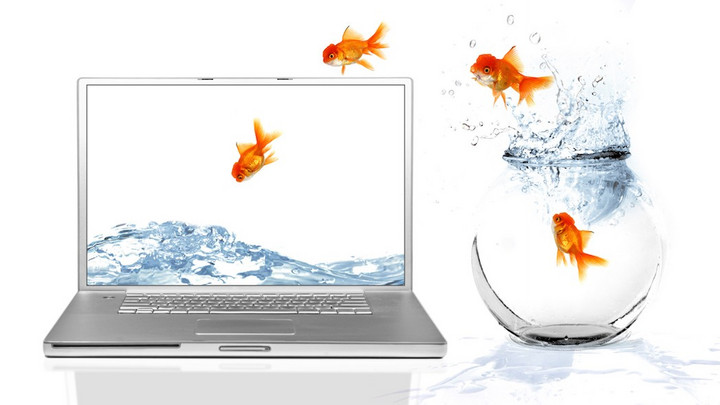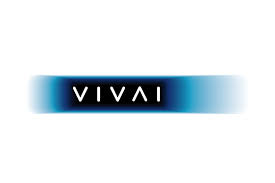How SMEs Can Approach Digital Transformation (Transcript)
Joining the IoT revolution can be particularly daunting for small and medium-sized enterprises. Dr. Bettina Horster, Board Member, VIVAI Software AG & Director of IoT at eco, talked to dotmagazine about how SMEs can approach digital transformation and why they should do so.

© tobkatrina | iStockphoto
Transcript
DOTMAGAZINE: Bettina, what are the most exciting projects you've seen or have been a part of in the area of industrial IoT?
DR. BETTINA HORSTER: Oh, as a pioneer in this subject I've seen a lot of projects and I think it's most often about efficiency, more effectiveness, more services. It's interesting but that doesn't excite me at all. It's the range of projects you can do that is exciting. It's about factories, it's about health care, it's about smart cities. There are so many topics - it touches everything in your daily life or in the life of most people. And what is really most exciting is that it boils down to six functions that are really important and that you can find with elderly people, with smart cities - it's always the same functions that you can see. It's about predictive maintenance, for example, or condition monitoring, or it's about localizing things and finding them, diagnosis and services, and risk assessment. You can project what's going to happen with the machine or with this person or with this product. And you can automate a lot of things. And you can find all six functions everywhere.
DOT: So what impact has the IoT revolution had on manufacturing and the products that are manufactured?
HORSTER: Well, it's about data. Everything now is about data. We call them cyber physical systems, and that means everything derives out of the data. And you collect a lot of data, and with this data you are able to do a lot of new things. For example, you can augment your products. If you have a harvesting machine, you can collect information about where you need more fertilizer based on the experiences you have had previously. And now you can fertilize much more precisely and much better and you save energy, and you save fertilizer. And these are all these kind of examples that make data valuable. If you take it further, you can even collect your data and sell it. I mean, everybody says it's the new gold and I believe it.
DOT: Should companies be trying to digitalize their entire production process or only parts of it?
HORSTER: Well, there are two different schools of thought. In one school, the big consulting companies you see, all of the really big ones, they say there has to be blood. It has to be really painful if you fail, to make it a threat. I personally think that's maybe okay for really, really big companies, but for companies who are medium and small I wouldn't recommend this. I would really recommend the soft approach. So this is: you start with one process, which is not core, which is important, and you select it very carefully. You really try to find employees who are motivated, who are really good at what they're doing. And you start with this kind of project. And when this project is very successful, it really makes sense to go on and on. For the next project: Maybe you have a ranking of all the projects which would be suited for digitalization. I think it would be best if you at first do your own workshop and find out where you start and then, step by step, you digitize your company and in the end you have the full momentum.
DOT: So, you speak about the people involved. How do you see the employment market being affected by digitalizing production processes?
HORSTER: Yes, they are touched by this digitization, but it's not as hard as most of the media describes it. You know, you always hear these horror scenarios that all truck drivers will become unemployed and the nurses will get replaced by robots. And I don't think that's the right picture. I mean, we are living in the big, big demographic change, and this big demographic change also results in fewer employees. And I think, as in most revolutions, it works out pretty well because you still need people, you still need experience. And there are a lot of people with a lot of experience that have to control and monitor, and sometimes go out and check the machines or the products that are out at the customers' premises. So they are still a lot of things to do, but they are a little bit more interesting. And I'm not saying that every working space can be kept, but I think with the change of the demography there will be lots of opportunities and lots of better work places which are not repetitive and which are more interesting.

© Wavebreakmedia | iStockphoto
DOT: So what steps do companies need to take to transform their factories from purely mechanical to digital smart plants?
HORSTER: Well, we see basically four steps that a company has to take in order to become a digitalized one. For most companies, it's true that they start with the smart factory: a better usage of the machines, more efficiency, and effectiveness. And the work is more interesting, with better work places. This next step is most often new products, or new services. For example, if you have this harvesting machine, it now has sensors in it and the sensors help you to really maximize the production on the field. So this would be the next one. And these are the cyber physical products.
The next step would be that you think about how to maximize your business models. So in the old days, you sold your products and that was it. And now, you start staying connected with your products because of the cyber physical systems - you have the sensors, and the sensors send all the data, and you can help your customer to be more productive. You know when this machine will need an exchange of a filter or something. So you are very well informed and you can help your customer much better.
And you can even – and this is the last one – have an autonomous system: now that you know exactly when the machine will break down and you go there and fix it when you have people who are available and you know when is the best time to repair the machine. And you don't sell your product anymore, but you lease it, for example. With this leasing, you can always maintain the machine the best way possible, and not have customers who are dissatisfied because they don't maintain their machines properly. So these are the phases, and that makes the whole difference to the customer because the customer experience should be much better.
DOT: Why is it so hard to go through the process of becoming an Industry 4.0 company? What are the barriers?
HORSTER: Well, there are several barriers. I think the biggest thing is a matter of trust. Everybody tells you or tells the owner of the company: oh, you have to protect yourself, you have to be safe and you shouldn’t share your intellectual property - you have to keep everything to yourself. And now, when you start to work with the industrial Internet, it is also about connecting with the supplier and with your customers. It's about telling them about your interfaces. There are a lot of companies are really scared and afraid because it's a total change of mindset. They have to change completely. And that is kind of scary for them, because you're giving away a lot of your intellectual property that you have worked on for years and years. So that's a hard one. Then, the next one we already talked about: it's finding the right product to start with. It sounds easy, but in fact it's a really tough one to find the right people, the right team, and the right task so that you can start your industrial Internet. And the third one, which I think is also a really big barrier, is that people say: okay, I want to do an industrial Internet project, and I know now where I could start, but what they don't have in their minds is: what is the business model? If we, for example, put sensors in our products, how can we make money out of that? And this is very vital, because if you cannot make money with it, what's the sense? And you can shape your business models totally differently from what you've done before - we mentioned already you don't want to sell your machine any more, maybe you sell the output. For example, with a compressor: they don't sell a compressor but they sell compressed air. You don't do industrial Internet for the sake of industrial Internet, you do it because you have a good business model and this you should always keep in mind.
DOT: So finally, what advice would you offer a company embarking on digital transformation?
HORSTER: I would really suggest - and that's what I'm always doing - that you shouldn't do it all by yourself, because it takes a lot of knowledge and know-how and experience. And there's a lot of people around with only a little experience, so you should really try to find somebody who has done a couple of projects already, and can prove it to you. Plus you should really not try to do it by yourself. You should at least do a workshop with somebody who helps you to find out what's a good starting point for you, and what's a good business model. You should always have this in mind because this is so new.
So you should take an adviser whom you trust. It's very tough. Each and every day there are new products on the market. For example, new IoT platforms, artificial intelligence tools, and so much more. And I think it's very wise to find somebody who guides you through this jungle.
Dr. Bettina Horster is Head of Business Development at VIVAI Software AG and is responsible for the area IoT (Internet of Things, Industry 4.0, M2M), and Director of IoT in eco – Association of the Internet Industry. Since 2009 she has been involved with the Internet of Things and is a pioneer in the field. She is currently also project leader for the IoT- EU project “Smart Service Power – technikgestütztes, altersgerechtes Wohnen im Quartier” (for IoT-assisted aged care in the own home), and recently won the UN NGOs Diplomatic Council „Information Society Award“, and was finalist in the UN “World Summit on the Information Society” prize.
Please note: The opinions expressed in Industry Insights published by dotmagazine are the author’s own and do not reflect the view of the publisher, eco – Association of the Internet Industry.



